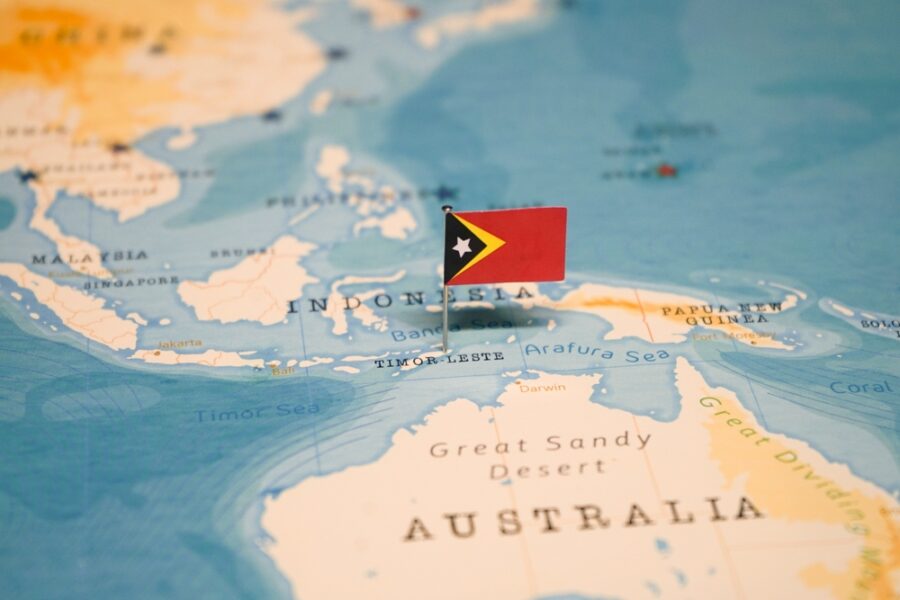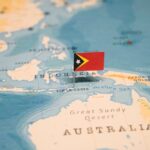Isle of Man responds to Timor-Leste suspension of gambling licenses

The Isle of Man’s gambling regulator, the Gambling Supervision Commission, has acknowledged a report on the threat alert of organized crime in Southeast Asia and the Pacific.
The United Nations Office on Drugs and Crime shared how transnational networks disguise criminal activities in legitimate businesses while declaring the Special Administrative Region of Oecusse-Ambeno and its Digital Center as areas of concern.
Lawmakers in Timor-Leste voted earlier this month to revoke existing gambling licenses and freeze new ones, citing risks to national security and the country’s reputation.
The decision followed an August police raid on a hotel in Oecusse that uncovered scam-related equipment and links to companies connected with Tech Company A, whose chairman was recently convicted in Singapore for data-theft offenses tied to online gambling.
Authorities also traced connections to the 14K Triad and criminal networks active in Cambodian casino zones.
The United Nations Office on Drugs and Crime report warned that criminal groups are using shell firms in special economic zones, professional-service fronts, fake infrastructure projects, and citizenship schemes to hide ownership and launder money.
The Isle of Man’s Gambling Supervision Commission echoed the call for vigilance, citing its own National Risk Appetite Statement on eGaming and Financial Crime. It said continued collaboration and preventative measures were vital to protecting the integrity of legitimate gambling sectors.
Abi Bray brings strong researching skills to the forefront of all of her writing, whether it’s the newest slots, industry trends or the ever changing legislation across the U.S, Asia and Australia, she maintains a keen eye for detail and a passion for reporting.
Verticals:
Sectors:
Topics:
Dig Deeper
The Backstory
Why the market is drawing a hard line
Global gambling is moving through a reset as regulators draw sharper boundaries between licensed and illicit activity, crypto-native operators pivot to legitimacy, and governments test enforcement. The latest moves build on a drumbeat of actions across regions that are converging on the same message: operate clean or exit.
In Southeast Asia, a United Nations Office on Drugs and Crime alert on organized crime networks exploiting online gambling has become a catalyst for policy reversals and tougher scrutiny. The report detailed how syndicates use shell companies, special economic zones and professional fronts to hide ownership and launder funds. That diagnosis quickly fed into national decisions and cross-border coordination, setting the tone for industry players recalibrating their risk.
The market’s shift also reflects the growing integration of crypto rails in gaming and the parallel rise of financial crime controls, from Europe’s MiCA framework to new licensing regimes in the Middle East. Those rails bring speed and reach, but also new obligations that national regulators are now enforcing with more consistency.
Timor-Leste’s rapid pivot after Oecusse raids
Timor-Leste illustrates how fast policy can turn when law enforcement and geopolitics intersect. In August, police raided a hotel in the Oecusse enclave and seized scam-related equipment tied to online gambling activity. Lawmakers reacted by voting to revoke existing licenses and freeze new ones, citing national security and reputational risk. The government later formalized the move, approving a blanket cancellation of online licenses and pledging strict enforcement as it eyes entry into ASEAN in October, a step that raises stakes on cross-border crime control. That sequence is detailed in the government’s cancellation decision and a response from the Isle of Man regulator, which echoed UNODC’s call for vigilance.
The pivot is notable because it reversed momentum from earlier in the year. Timor-Leste had just signed a concession agreement with Golden River Universe Lda, naming the operator the country’s first licensed offshore platform and linking it with Grand Dragon Loteria’s planned relocation of support and R&D functions. The story of that push, including the plan to build an offshore operators hub in Oecusse and a warning visit from the Philippines justice secretary about the risks of ex-POGOs, is captured in reporting on the first offshore license. The crackdown that followed shows how quickly licensing ambitions can be suspended when authorities detect direct exposure to regional crime networks.
The implications extend beyond a single concession. Timor-Leste’s reset signals to other small markets entertaining offshore strategies that early-stage frameworks need strong integrity controls or risk abrupt reversal under international pressure. It also underscores ASEAN dynamics, where a new entrant faces expectations on enforcement parity with neighbors battling similar threats.
Isle of Man raises its guard as UNODC flags risk
The Isle of Man’s Gambling Supervision Commission acknowledged the UNODC threat alert and urged continued collaboration to protect legitimate gambling sectors. The regulator cited its National Risk Appetite Statement on e-gaming and financial crime and called for preventative measures aligned with the report’s findings on shell firms and special-zone fronts. The details are in the Isle of Man’s response, which frames the crackdown not as a regional anomaly but a global risk scenario for platforms that operate across borders and payment systems.
This response matters because the Isle of Man remains a key hub for remote gambling operators and service providers. Its public stance signals to licensees that tolerance for gray-market spillovers is narrowing. It also reinforces the message seen elsewhere: domestic credibility depends on distancing from jurisdictions or practices that invite criminal exploitation, even when those practices previously sat in a tolerated gray zone.
Chile’s courts set a bright-line standard
In Latin America, a landmark ruling in Chile sharpened the legal perimeter. The Supreme Court ordered internet providers to block unauthorized igaming sites, declaring those platforms illegal under Chilean law. The decision, welcomed by the Chilean Casino and Gambling Association, sets a precedent that normalizing unlicensed gambling online will not continue. The association’s stance and the court’s effect on service providers are covered in the post-ruling response.
The Chile move is a signal case for the region, where national frameworks are in flux and lobbying is intense. By making ISP blocking a compliance requirement, the court placed a tangible duty on intermediaries and handed regulators a tool that can be applied without waiting for new legislation. For operators pursuing regulated pathways, the clarity is welcome. For gray-market brands, the cost of geoblocking and payment disruption goes up.
Cyber pipelines and state-backed networks
Law enforcement actions are increasingly connecting illegal gambling proceeds to sophisticated cyber operations. In South Korea, prosecutors charged a man with selling domains for illegal gambling sites built by North Korean hackers, alleging millions in proceeds and a material share routed to Pyongyang. The case, described in coverage of the North Korean-linked network, highlights how gambling infrastructure can fund sanctioned regimes and how domain brokerage and site resale can become conduits for state-directed cyber activity.
This is part of a wider trend: as platforms adopt crypto payments and cross-border hosting, the attack surface widens. Regulators and prosecutors are now tracing how illicit networks exploit both fiat and digital rails, pushing for tougher KYC, wallet screening and provenance checks. The line between gambling compliance and national security grows thinner when cases involve state actors, triad links or scam hubs.
A crypto heavyweight chooses regulation
The strategic shift is also coming from inside the industry. Yolo Group, an early crypto gambling leader, is closing its gray-market brands Sportsbet.io and Bitcasino.io as it pursues two B2B vendor licenses in the UAE and consolidates under a single regulated brand at Yolo.com. The move, aimed at aligning with regulators that reject dual-track operations, includes job cuts and a plan to launch a compliant digital arm through its licensed Tallinn casino, with MiCA-ready crypto payments and expansion in licensed markets. The decision and roadmap are outlined in reporting on Yolo’s pivot, with further context in founder Tim Heath’s Substack note on choosing the regulated path and analyst reaction on LinkedIn calling it a seismic shift.
The UAE’s developing framework, praised by industry executives as a potential gold standard, offers a route for crypto-native operators to legitimize while preserving a core value proposition. But the tradeoff is explicit: no more straddling gray and white markets. That binary choice is now echoed by regulators from the Isle of Man to Chile and in enforcement cases across Asia.
Taken together, these moves show a sector aligning around clearer rules, tighter financial integrity and real consequences for noncompliance. Operators betting on regulation as a growth strategy will need to invest in compliance infrastructure and market-by-market approvals. Those holding onto unlicensed volume face rising legal, payment and reputational risk as governments and courts narrow the space for ambiguity.







